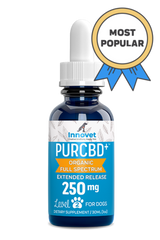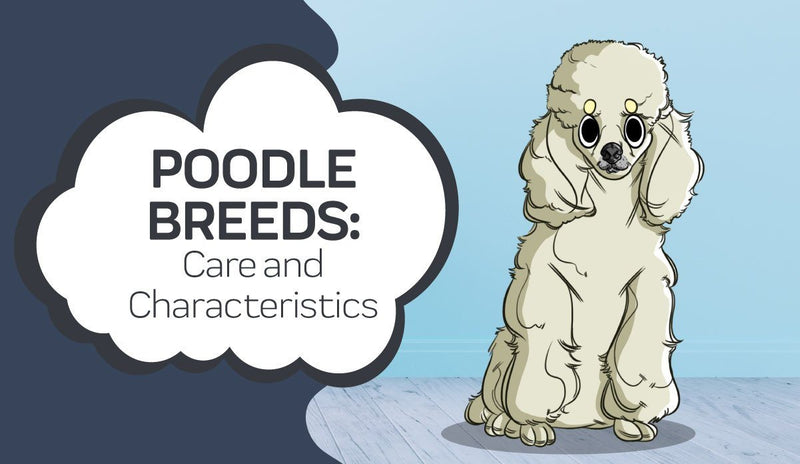
Are you the lucky owner of a German Shepherd? Do you want a puppy of your own, and you’re leaning towards a German Shepherd, but want to know as much as possible before committing to adopting one?
Maybe you’re simply intrigued by the breed and want to learn more about German Shepherds. It could be possible that your German Shepherd is ill and you are determined to understand everything that might be contributing to your dog’s poor health condition.
No matter your affiliation to German Shepherds or the reason behind your interest in the dog breed, you will find an abundance of information about German Shepherds in the following sections.
- Generic Background Information About German Shepherd Dog Breed
- How To Care for an Ill German Shepherd
- Physical Discomfort That Your German Shepherd Could Face
- Mental Ailments German Shepherds Might Experience
- Manufactured RX Prescriptions VS a Natural Approach: Which is Better?
- Five Medications You Should Never Give a German Shepherd
- The Benefits of Hemp and CBD Oil For German Shepherds
- CBD and Hemp Products for Your German Shepherd
Generic Background Information About German Shepherd Dog Breed
As one of the arguably most loyal and playful dog breeds in the world, German Shepherds are well-known for the devotion they express towards their beloved owners and their almost supernatural intelligence.
As if the name has yet to give it away, German Shepherds are originally from Germany. Originating in the European country around 1899, German Shepherds have a background in guarding homes and herding livestock.
Temperament
Naturally, German Shepherds are some of the most docile and loyal dogs in existence. German Shepherds are one of the most suitable dog breeds imaginable for a family, especially one with young children.
The fact that law enforcement officers often recruit German Shepherds to act as police dogs is no coincidence. The loyalty, protective instincts, and incredible intellect of German Shepherds make for an unparalleled combination.
As puppies, German Shepherds are little, energetic, playful companions with the ability to become so carried away with playtime that they can be a bit disorderly.
With proper training and by learning basic commands from an early age, German Shepherds begin to shed their unruly and rambunctious behaviors in exchange for calmer and more obedient mannerisms.
Personality
 Does your dog seem to sleep on hardwood floors or does she opt into falling asleep on a bed instead? Does your German Shepherd prefer kibble over wet food? Will your puppy chase after squeaky toys or does he tend to like playing tug-of-war with ropes instead? While the temperament of German Shepherds describes their innate traits, personalities differ from one dog to the next. German Shepherds share characteristics regarding strength, intelligence, loyalty, potential health issues, courageousness, and related descriptors. However, unlike temperament, personalities can vary quite drastically.
Does your dog seem to sleep on hardwood floors or does she opt into falling asleep on a bed instead? Does your German Shepherd prefer kibble over wet food? Will your puppy chase after squeaky toys or does he tend to like playing tug-of-war with ropes instead? While the temperament of German Shepherds describes their innate traits, personalities differ from one dog to the next. German Shepherds share characteristics regarding strength, intelligence, loyalty, potential health issues, courageousness, and related descriptors. However, unlike temperament, personalities can vary quite drastically.
Personality refers to preferences that your dog in particular holds, rather than traits that your German Shepherd shares with other dogs of the same breed.
Physical Size and Appearance
Officially called the Alsatian in European countries, the German Shepherd is a majestic breed. When fully grown, German Shepherds range in height anywhere from twenty-two to twenty-size inches.
In terms of weight, German Shepherds are about fifty-five to ninety-five pounds, on average, though every dog is different. Diet and any restrictions will influence the weight of any animal, so it is not necessary that all German Shepherds fall within these parameters.
Male German Shepherds tend to be taller and heavier than their female counterparts, though the discrepancy between genders is not terribly extreme.
How To Care for an Ill German Shepherd
In your efforts to figure out what your German Shepherd is sick with, it is best to consult a trusted and experienced veterinarian. While a quick Google search could provide you with insight as to what is going on, nothing can replace the value of seeking medical attention directly from your dog’s vet.
Sometimes, two completely distinct physical ailments will present themselves in similar ways. For example, let’s say that your German Shepherd hasn’t been eating his or her dry food, which is especially peculiar seeing as your dog tends to finish every piece of kibble in the dish.
Many dog owners assume that a change in eating habits is the first sign of a condition called bloat. However, a reduction in appetite is also a side effect of a completely different condition by the name of megaesophagus.
You know your German Shepherd better than anyone, but trained professionals who specialize in treating dog breeds will be able to diagnose your dog with exact precision. If you rely on your instincts alone, you could be wrong about the root cause of the problem.
Continuing with the example above, treating megaesophagus as though it is bloat will result in greater complications, thereby compromising your German Shepherd’s health and chances of improving.
While we advise that you always seek the wisdom and advice of professionals, we
Physical Discomfort That Your German Shepherd Could Face
German Shepherds are prone to many physical symptoms that are part of even larger health concerns. When your dog falls sick with an illness of any kind, your heart will break at the sight of your beloved German Shepherd suffering from pain.
However, you do not need to fall victim to hopelessness. But have no fear. Hope is not lost, and we are here to guide you every step of the way.
It is first and foremost important that you stay up-to-date and educated on the troubles your German Shepherd might face over the years. In brief detail, we will first touch on a handful of illnesses to be aware of as the owner of a German Shepherd.
We will then introduce you to a plethora of natural remedies to treat the core problem and the subsequent symptoms affecting your German Shepherd’s well being.
Bloat
 This is the case because an excessive amount of air enters the lungs when dogs eat their food in a very short amount of time. The pockets of air form in the dog’s stomach, and with food in the stomach as well, the stomach might be above its threshold of contents. Bloat is one of the most daunting of all possible conditions because it is more common and the least preventable. If a German Shepherd consumes his or her food too quickly, bloat can occur.
This is the case because an excessive amount of air enters the lungs when dogs eat their food in a very short amount of time. The pockets of air form in the dog’s stomach, and with food in the stomach as well, the stomach might be above its threshold of contents. Bloat is one of the most daunting of all possible conditions because it is more common and the least preventable. If a German Shepherd consumes his or her food too quickly, bloat can occur.
When the stomach swells, it can cause damage to surrounding organs, as well as restrict blood flow throughout your dog’s body. Without immediate attention, German Shepherds can pass away as a result of bloat.
Elbow Dysplasia
Dysplasia is a term that refers to the abnormal development of body parts, particularly those that are organs or connective tissue.
When a German Shepherd is diagnosed with elbow dysplasia, the term means that the dog’s elbow did not form in the manner that it should have during the development process prior to birth.
Elbow dysplasia is not a death sentence by any means, so you can breathe knowing that your German Shepherd will live a fulfilling life even with elbow dysplasia.
The effects of this condition include initial complications in terms of walking, jogging, or running.
Dysplasia of any kind create a bit of discomfort, and in some instances, the elbow may swell in size. It all comes down to the placement of the joint within its socket.
Unfortunately for German Shepherds, elbow - as well as hip - dysplasia is a condition that is passed down from one parent to the next.
Though basic rules of hereditary conditions show that some offspring will not inherit an unfavorable trait from their parents, the chances of a German Shepherd having elbow dysplasia when their mom or dad had the condition are fairly high.
The Orthopedic Foundation for Animals can assist you in any concerns you have about the likelihood of German Shepherd puppies being born with elbow dysplasia.
Exocrine Pancreatic Insufficiency
A condition is known as exocrine pancreatic insufficiency, or EPI for short, is only common among a few dog breeds, German Shepherds being one of the unlucky candidates. Essentially, EPI causes the pancreas of dogs to have a limited amount of enzyme activity.
When the pancreas does not produce enzymes as rapidly and often as it normally should, the dog’s body doesn’t break down and absorb nutrients found in the dog’s food.
While EPI is fatal in extreme cases, it is not hard to spot because German Shepherds will appear physically smaller and less actively inclined.
Treatment is available to replace vitamins, minerals, and nutrients that your dog’s body cannot retrieve on its own.
Other equally important conditions to be aware of in German Shepherds include:
- Degenerative Myelopathy
- Epilepsy
- Hip Dysplasia
- Inflammatory Bowel Disease
- Intervertebral Disc Disease
- Keratitis
- Lupus
- Megaesophagus
- Osteoarthritis
- Osteochondrosis Dissecans
- Pancreatic Insufficiency
Mental Ailments German Shepherds Might Experience
Physical illnesses are not the only health-related issues that your dog might run into somewhere down the road. German Shepherds are prone to coming down with mental illnesses as well.
These chemical imbalances often cause secondhand behavioral problems as a result.
Manufactured RX Prescriptions VS a Natural Approach: Which is Better?
When it comes to medicating your German Shepherd, you should never act on your own accord. Though this may not be completely obvious, medications that humans take to resolve ailments - such as headaches, cramping, bloating, muscle aches, et cetera - are actually potentially fatal to many dog breeds, the German Shepherd included.
Their bodies are vastly different from ours, so treating them with the same medicinal approaches is illogical.
At the end of the day, natural remedies for German Shepherds with a sickness of any kind are the preferred and more promising route to take in curing your dog.
Remedies that involve hemp and CBD oil are remarkably less harmful than man-made medications, so we promote taking a natural approach to your German Shepherd’s health.
For the sake of being informative, we have listed a few examples of medications that are poisonous to German Shepherds. Steer clear of any brands that fall into all of these categories.
Five Medications You Should Never Give a German Shepherd
Benzodiazepines
On the topic of mental stability, benzodiazepines are commonly prescribed to humans who need relief from anxiety, panic disorders, insomnia, or anything of the like. Interestingly enough, however, benzodiazepines create these problems in German Shepherds.
They act as depressants, meaning they slow down the nervous system. If a person who does not truly need the assistance of a benzodiazepine takes on anyway, they will experience a lowered heart rate, almost immediate sluggishness, and slower breathing.
While this is a piece of paradise for people who suffer from hyperstimulation and arousal, German Shepherds have the opposite response. Despite having similar physical reactions, German Shepherds become stressed, and the slowing of nervous system functions can be fatal.
Antidepressants
The logic behind antidepressants is that they will boost the mood, behavior, and overall well being of anyone who, or any animal that, ingests them. The truth about antidepressants is that they sometimes elicit an increase in the moods and emotions that someone is trying to reduce.
In other words, depending on brain chemistry, antidepressants can enhance the problem instead of alleviating mental misery. The same is true with German Shepherds that ingest antidepressants.
In the worst-case scenario, a dog who has taken an antidepressant could die from physical complications, ranging from too much sedation at once to an abundance of stimulation that the German Shepherd’s body cannot handle.
Acetaminophen
Used primarily to treat headaches, fevers, and minor pain in humans, acetaminophen alters the red blood cell count in German Shepherds. Red blood cells regulate the body’s ability to breathe by transferring carbon dioxide away from the lungs so that it can be exhaled, as well as carrying oxygen throughout the body.
Acetaminophen can make it very hard for German Shepherds to breathe.
Medications Used to Treat ADD or ADHD - If a German Shepherd swallows a pill intended to treat Attention Deficit Disorder in humans, the concoction within the capsule will send your German Shepherd into overdrive.
These medicines are stimulants that, in appropriate doses, are highly effective in treating both ADD and ADHD in humans.
However, if one of these medications makes its way into your German Shepherd’s bloodstream, your dog could experience rapid heartbeats, seizures, and potentially death from the onset of a heart attack.
Non-Steroidal Anti-Inflammatories
From sleep aids to migraine suppressants and nearly everything in between, non-steroidal anti-inflammatories are legal prescription drugs that people take for a wide array of reasons.
Examples of NSAIDs include ibuprofen, aspirin, naproxen, oxaprozin, and piroxicam, among many others. While they are rarely fatal for humans in even the highest of doses, the slightest ingestion of an NSAID by a German Shepherd could result in kidney
NSAIDs are life-threatening medications for German Shepherds.
The Benefits of Hemp and CBD Oil For German Shepherds
In fact, there is always a chance that over-the-counter prescriptions will exacerbate the symptoms your German Shepherd is dealing with, which is counterintuitive and very detrimental to your dog’s wellbeing. The market for CBD-infused dog treats and natural medicinal remedies is growing by the day. More and more people are coming to the light as advances are made.
Studies continue to emerge with research backing the claim that CBD oil is an all-natural way to control many mental symptoms and lessen the pain of a plethora of physical problems.
Dogs can only take so much pain before it becomes absolutely unbearable, so making sure German Shepherds are treated with the right products is essential.
CBD oil and hemp oil are sometimes derived from the same cannabis plant. The only major distinction between the two oils is that hemp oil is 100% solely extracted from hemp plants, and therefore is completely free from THC in all capacities.
In contrast, it is possible that CBD oil has been derived from a cannabis plant other than the hemp plant.
As a result, CBD oils might contain a slight fraction of THC, but it is never a high enough percentage to where your German Shepherd will experience any hallucinogenic effects.
The benefits of Introducing your German Shepherd to CBD-infused products are:
CBD and Hemp Products for Your German Shepherd

Are you looking for natural remedies to help your German Shepherd feel better? Innovet has everything you could possibly need, and then some.
From pure CBD oil for your pet and hemp dog treats to a combination of hemp o and CBD capsules, our extensive list of hemp-based items and CBD-focused products are sure to assist your German Shepherd with any condition he or she is facing.
German Shepherds deserve only the best of the best when it comes to CBD treatments, and we deliver nothing less than top-quality strains. If you cannot find what you are looking for, or you have a question about any of our products, reach out to us at your convenience.
Sources:
CBD User: A Cross-Sectional StudyCannabidiol as a Potential Anticancer Drug
CBD Treatment in Osteoarthritic Dogs
CBD For Cancer-Related Pain
Cannabidiol Reduces Inflammation

















